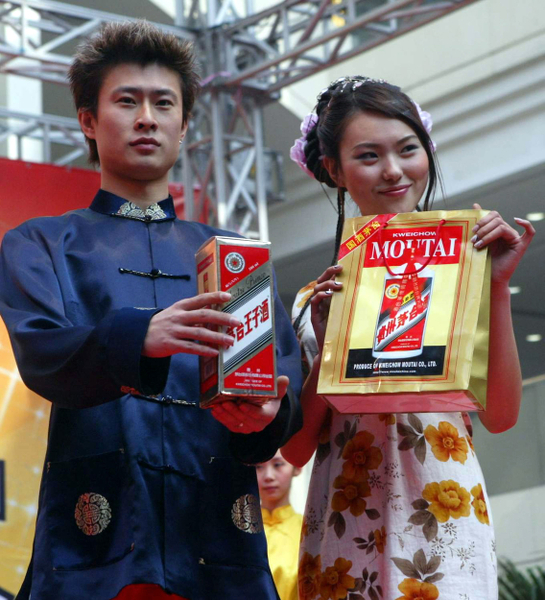

Getting ahead in China often depends on connections and the giving of “gifts”—to expedite business or get your toddler enrolled in nursery school. These value of these gifts, which are essentially bribes or a way of laundering money, were worth a $122 billion in 2011, according to China Economic Weekly.
The sophistication of gift giving, the rituals associated with it, and the vast amounts of goods being transferred, has formed an underground economy. Luxury goods are a staple of the gift-giving economy.
Antiques and paintings have ranked number one in value as gift items used to bribe Chinese officials in recent years. Real estate comes second, and small luxury items third, according to a United Daily News report citing a cadre at the Beijing Municipal Commission for Discipline Inspection.
Based on People’s Daily, the flagship propaganda newspaper of the Chinese Communist Party, China is likely to surpass Japan as the world’s largest purchaser of luxury goods in 2012.
People’s Daily also said that some 40,000 communist party members and cadres gave gifts and gift certificates in the amount of 386 million yuan (approximately US$61 million) in 2011.
A recent report by McKinsey & Co expects China to be the largest luxury goods market in the world by 2015, which would amount to more than 20 percent of global sales.
Opening Doors
China Economic Weekly said that Lang Huadong, an art collector from Linan City, Zhejiang Province, attends auctions in Beijing almost every month. He buys gifts not only for himself but also for bribes, and he does research about the bribe receivers’ preferences in advance.
The report also said that the tobacco and liquor market in the mainland has shifted from being a general consumer market to being a high-end gift market. People who buy products such as Maotai—a high-end Chinese liquor—belong to the wealthy, who want to open up more doors in their pursuit for power.
Zhang said that five years ago, with a booming real estate market, decorative textiles, small electronics, and kitchenware were popular gift items. In recent years, electronics such as camcorders, cameras, e-books, and tablets have become very popular gifts. For example, 60 percent of the Hanwang e-book products are purchased as gifts.
High-end clothing, luxury watches, and cars are also the gifts of choice among the super-rich.
Of course, bribing methods vary. Lang Yong, a well-known art dealer, told China Economic Weekly that when people request paintings and calligraphy art through him, many asked him to add someone’s name in the title. On the one hand, it lessens the buyer’s guilt of bribing; on the other hand, the recipient has no choice but to accept the gift, as his name is already on the piece. There are also prepaid gift cards so the recipient can pick whatever he wants, Lang said.
Some enterprises buy hundreds or thousands of prepaid gift cards. One prepaid card company, for example, has 5,800 enterprise-level clients and has issued 900,000 prepaid cards. Over 4,000 stores participate in the program, and over 1.15 million individuals carry such cards.
Bribery, embezzlement, and nepotism are widespread in Chinese officialdom. According to state media, more than 140,000 Chinese officials were punished in 2010 alone for disciplinary violations, with more than 5,000 at or above the county level, according to a New Tang Dynasty Televisions Feb. 2011 report.
Read the original Chinese article.



